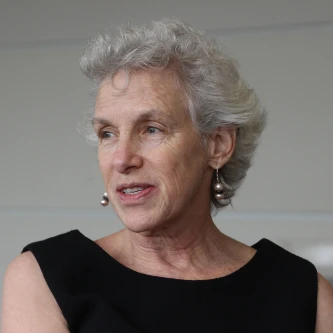Bio Described as having “something approaching rock star status” in her field by The New York Times Magazine and as a “global thought leader on diversity” by Kédar Iyer, GapJumpers CEO, Joan C. Williams is a Sullivan Professor of Law and Founding Director of the Center for WorkLife Law at the University of California, Hastings Law.
Williams has been on the forefront of research focused on how gender and racial bias plays out in everyday workplace interactions for over two decades and has co-authored a series of influential reports on workplace bias in engineering, tech, architecture, and the legal profession. She is widely known for “bias interrupters” – an evidence-based metrics driven approach to eradicating implicit bias introduced in the Harvard Business Review in 2014. The website www.biasinterrupters.org with open-sourced toolkits for individuals and organizations has been accessed nearly 300,000 times around the world and has been so influential in Europe that she was awarded an honorary PhD from Utrecht University in 2018.
Williams’ work is well-known among business leaders, HR professionals and individuals. Williams has published 30 articles in the Harvard Business Review, including one of the most-read articles in its 90 year history. Her TED talk, “Why Corporate Diversity Programs Fail – and How Small Tweaks Can Have a Big Impact” was viewed over one million times. Her most recent book, Bias Interrupted: Creating Inclusion For Real and For Good, offers a fresh approach to inclusion that is concrete, evidenced-based, and actionable.
Williams’ expertise is highly sought-after by companies and organizations seeking to make tangible progress toward their diversity, equity, and inclusion goals. Williams and her team have worked with 40+ organizations leading trainings, conducting research, developing innovative change initiatives, and implementing practical tools that will work within the specific industry or organization. Williams’ bias interrupters workshop has been very positively received in environments that are not particularly open to diversity workshops. In a recent session, 100% of participants said they had a better understanding of how bias affects people as a result of the workshop, 96% said they learned new strategies for interrupting bias and 87% said they were likely to use them going forward.
